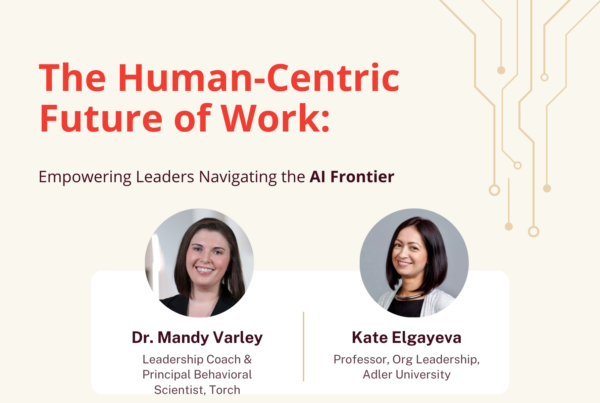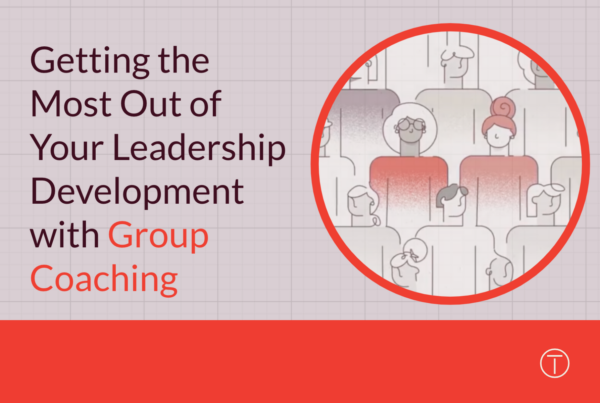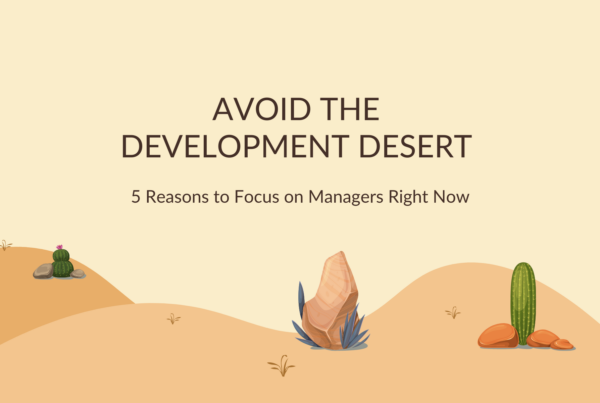To be a highly effective leader you must grow your capacity to be self-aware. This can be done by forming a trusted relationship with a mentor to gain consistent feedback. Mentoring is a development-focused relationship where a domain-relevant mentor works with a mentee to develop their professional skills.
Each month, we will be interviewing one of our mentors to highlight their advice for future leaders. This month, we spoke with Torch mentor, Andora Gandy. Andora is the Founder and President of REPEATit Excellence and Torch mentor for the past six years. We sat down with Andora to ask her five questions about leadership development and mentorship, what follows is a condensed version of our conversation. You can watch the full video below.
Jasmine McDermott: What does the Torch value ‘be a self-aware continuous learner’ mean?
Adora Gandy: If you want to change your behaviors, or if you want to change habits, you must be self-aware. In order to grow, you must first be able to recognize unhealthy habits, environments, communication patterns and working styles. Once you identify that there is a problem or barrier, you can then work towards making change.
JM: As a self-aware continuous learner, what is something you are currently learning?
AG: I got my degree in communication and I feel passionate about continuing to research and teach communication techniques. Currently, I am taking a class on communication focused on the psychology of communication and the different strategies for interpersonal communication. Even though I teach communication, I still consider myself a student in continuing my own development.
Another facet of communication I am learning is how to communicate with my husband’s three-year-old daughter. Speaking with a child is very different, but, in a lot of ways, very similar to speaking with adults. For example, she is in the phase of asking ‘why’ all the time. I believe, as adults, we are also asking ‘why’ frequently, but often don’t speak it. Sometimes we don’t ask because we don’t really want to know the real answer. Sometimes we don’t ask because we’ve asked before and not received a clear answer. Sometimes we don’t ask because we don’t want to seem difficult or defensive. However, asking ‘why’ is essential to understanding yourself and practicing effective communication.
JM: What do you enjoy most about being a mentor?
AG: First and foremost, I love people. Interacting with mentees has been amazing because I’ve had the opportunity to meet so many different kinds of people on different professional and personal journeys. What I love more than anything is walking alongside a person to help them unfold their clear vision and craft the path to get there. I also see the mentor-mentee relationship as a two-way street meaning that I learn from them just as they learn from me.
JM: Reflecting on your own journey and your own leadership development, what advice would you have for your younger self?
AG: I would advise my younger self, and all developing professionals, to take the risk and go the road less traveled. There’s a poem by Robert Frost titled The Road Less Traveled. In the poem, he talks about a person being presented with two paths. I think as leaders, we have to discern between paths. One path is clear and easy to walk whereas the other is overgrown and daunting. Although the second path may seem intimidating, sometimes it is necessary to take this path in order to grow. For example, I never thought I would own my own business and here I am six years later. For me and my family, this was the road less traveled which ultimately led me to build a successful business.
JM: As the world faces a pandemic, a civil rights movement and economic upheaval what can leaders be doing less of?
AG: Often we are asking “What can we do more of?” so I love thinking about “What can we do less of?” I would advise leaders to do less talking. The reason I say this is because leaders often feel like they have all the experience so they need to be the ones to say or do something. However, I think right now leaders need to do more listening and understanding. Once leaders listen, then they can join together with employees and community members to collaborate and make change.
If you’re interested in Torch mentoring, contact us today. If you’re interested in becoming a Torch mentor, apply here.


